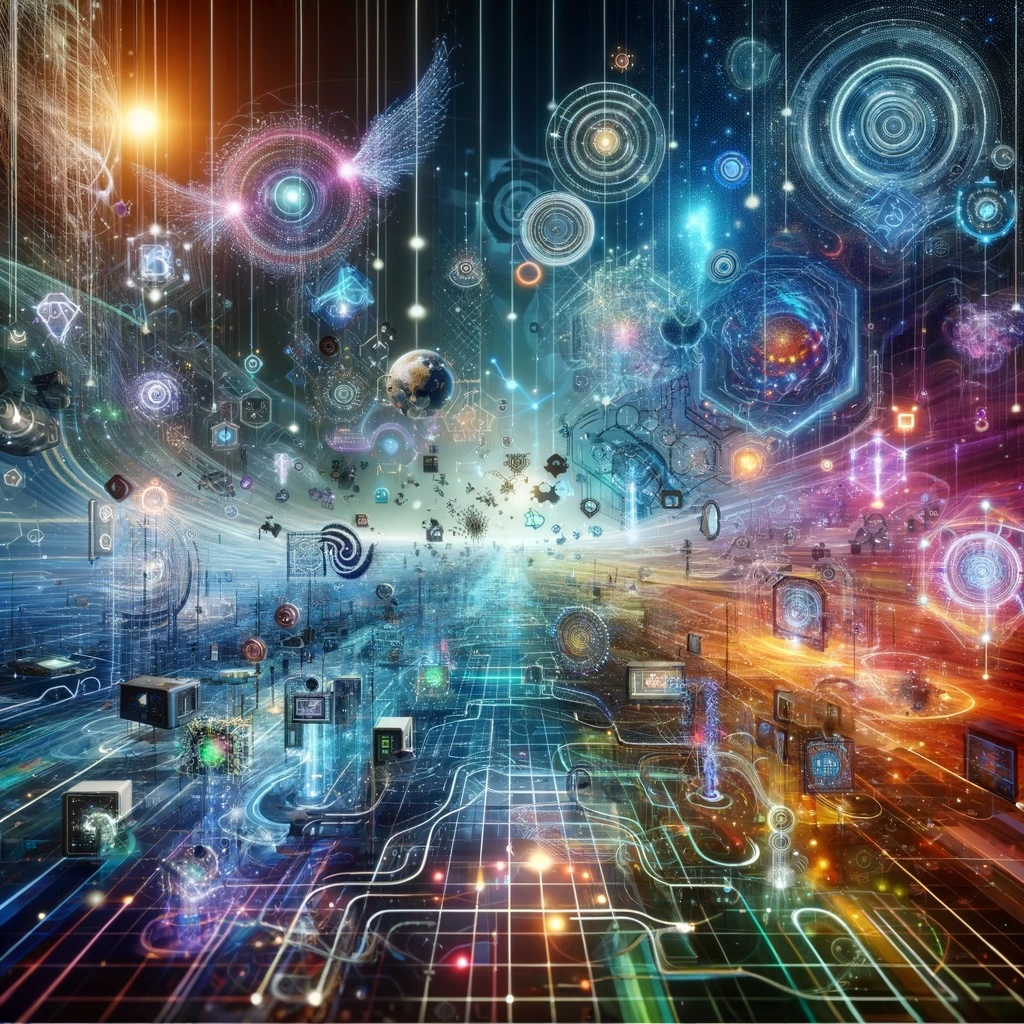The future is always uncertain, but I have a unique perspective on how current trends and developments in technology and global politics are shaping what lies ahead and explore the key issues and challenges that we are likely to face in this fast-paced and interconnected world.

One of the most significant trends that we are seeing in the recent future is the increasing influence of technology on almost every aspect of our lives. From the way we communicate and work to how we shop and entertain ourselves, technology is transforming the world at an unprecedented pace. Artificial intelligence, blockchain, virtual reality, and the Internet of Things are just a few examples of disruptive technologies that are reshaping industries and societies.
I am particularly excited about the potential of these technologies to improve efficiency, productivity, and innovation. AI, for instance, is already being used to automate routine tasks, analyse large amounts of data, and even assist doctors in diagnosing diseases. Blockchain technology is revolutionising industries such as finance, supply chain management, and healthcare by providing secure and transparent digital ledgers for transactions. Virtual reality is changing the way we experience entertainment, education, and training by immersing us in virtual worlds. And the Internet of Things is connecting devices and sensors to the internet, creating a vast network of smart devices that can communicate and share data.
However, with great power comes great responsibility. I am also mindful of the risks and challenges that come with the rapid advancement of technology. Cybersecurity threats, data privacy concerns, and the potential for job displacement are just a few of the issues that we must address in order to ensure that technology benefits everyone in society. The recent future will require vigilant oversight, ethical standards, and international cooperation to harness the potential of technology for the greater good.
In addition to technological advancements, the recent future will also be shaped by geopolitical developments and shifting power dynamics on the global stage. The rise of China as a major economic and military power, the increasing assertiveness of Russia, and the changing role of the United States in international affairs are just a few examples of how the geopolitical landscape is evolving. I am constantly monitoring these trends and analysing their implications for regional stability, security, and prosperity.
One of the key challenges that we will face in the recent future is the rise of protectionism and nationalism. In a world that is becoming increasingly interconnected through trade, finance, and communication, isolationist policies and nationalist rhetoric can undermine cooperation, stability, and progress. The recent trend towards populism, xenophobia, and anti-globalization sentiments in many countries is a troubling development that could lead to trade wars, geopolitical tensions, and economic stagnation.
I believe that the recent future will be defined by our ability to navigate these complex and interconnected challenges. We must embrace technology as a source of innovation and progress, while also being mindful of its potential risks and consequences. We must engage in constructive dialogue and cooperation with other countries to address geopolitical conflicts and promote peace and stability. And we must uphold the values of openness, inclusivity, and collaboration in order to build a better future for all.
In conclusion, the recent future is a time of great promise and peril. By harnessing the power of technology, navigating geopolitical challenges, and upholding shared values, we can overcome the obstacles that lie ahead and build a more prosperous and peaceful world for generations to come. I am optimistic about the possibilities that the recent future holds, and I am committed to working towards a brighter tomorrow for all.
George Vassilikos















